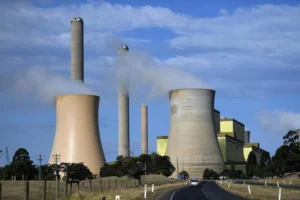Much of the recent debate over Australia’s new Energy White Paper deals with climate change, the planned growth of Australia’s coal and gas exports, and the future of electricity sector. And although when most people think of climate change and energy they also think of the transport sector, this new white paper has little to say on the subject.
This lower profile for transport is unfortunate for several reasons. Transport is unusual in its near-total dependence on a single form of energy (oil). The residential and industrial sectors have a greater array of energy sources to potentially meet their needs (such as for lighting, heating, cooling, and powering machinery).
Viable alternative energy sources for motorised transport are also very limited in comparison to other sectors. Indeed, the front-runner is the electric drive system, and it currently relies on electricity from the fossil fuel-dominated national electricity grid.
It’s also worth remembering that transport is largely exempt from the carbon tax.
Normal economic markets cannot resolve these issues. Governments must intervene to address these transport market failures.
Advocates of sustainable transport have identified two major energy issues; both are now widely recognised.
- Transport’s use of oil makes it one the major sources of national greenhouse gas emissions. It might be possible for Australia for largely de-carbonise its economy by 2050 without any significant contribution from transport, but this would require the remainder of the economy to produce almost no emissions.
- Future decline in global oil supply will mark an escalation in the cost of oil, with the obvious economic consequences. Australia’s domestic oil production is already drawing to a close; for us, peak oil is unequivocally a reality Australia will be increasingly reliant on oil imports in coming decades. For car-dependent households on lower incomes in particular, the end of cheap oil will add to the costs of mobility. A range of goods and services will also become more expensive as business recover their transport energy costs.
For these issues, the business-as-usual trends are discomforting. The growth rate of our transport greenhouse gas emissions has slowed, but continues to increase with population growth, while our reliance on imported fossil fuels for transport energy continues to increase. What the white paper has to say on these issues, therefore, is central to the sustainable transport debate.
Unfortunately, the white paper’s interest in climate change and peak oil might be charitably described as modest.
By a stroke of policy partitioning, the white paper leaves climate change to the climate change policies and offers little support for them. Given that cutting greenhouse gas emissions is primarily an energy policy issue, there is an obvious problem when the nation’s energy and climate change policies don’t sing from the same song sheet.
The white paper continues with the approach of the last national policy on energy security and proposes that the international oil market will continue to meet Australia’s needs. On this point, the white paper holds that these supplies are “mature, diverse, and reliable”, so that the domestic markets are “functioning efficiently and effectively and are well placed to meet future needs”. No “resource constraints” are expected to “at least 2035”. Rising demand for fuels will be partly offset by improving engine technologies and increasing use of alternative fuels.
So what does the white paper propose to do about liquid fuels? Three broad actions are offered:
- Continue to “monitor developments in the global liquid fuel market”.
- Work with industry and the Alternative Transport Fuels Implementation Advisory Group that takes “a market-led approach to the development and deployment of alternative transport fuels”.
- Develop a “more consistent long-term policy framework for liquid fuels so as to promote stability and certainty for future investment”. The first step is a Productivity Commission review on fuel excise and its possible replacement by a carbon-and energy-content based system.
There are also a set of actions relating to monitoring and assessment.
Clearly, these policies will add little to the nation’s efforts to reduce transport emissions or address oil energy security. Australia’s energy policy and climate change policy are seemingly pulling in different directions and nowhere is this clearer than in the transport sector.
Australia’s Federal Government has invested considerably in alternative transport energy research and policy development, but few of these outputs inform the white paper. And there are signs of differences in outlook; while climate change policy features the carbon tax and government intervention in markets, the energy white paper works with prevailing market activities and values.
This outcome points to a deeper and persistent schism in Australian politics. National resource and economic policy is being governed though essentially free-market policies while environmental policy is based in more regulatory and market-interventionist approaches.
Australia’s last energy white paper was from the Howard government in 2004. Advocates of sustainable transport were concerned about that policy’s failure to acknowledge the problem of peak oil, its technological optimism, and its failure to tackle greenhouse gas emissions from the transport sector. Much of this criticism was sheeted home to that government’s scepticism over climate change and its boosterish attitude towards reaping the benefits from the nation’s energy exports.
Under the Gillard government, climate change is recognised as a major policy challenge for Australia. But this seems to have little impact on that government’s view of the future of transport. Those market forces that have served to direct the path of our transport sector to date have been entrusted with its future; this has been facilitated and supported by Federal Government policy. And it is not good news for either our emissions, or reducing our dependence on expensive oil.
Leigh Glover is a Research Fellow, GAMUT at University of Melbourne
This article was originally published on The Conversation. Reproduced with permission.










